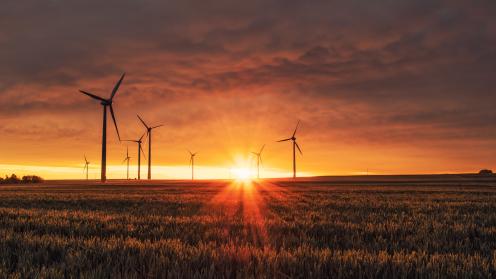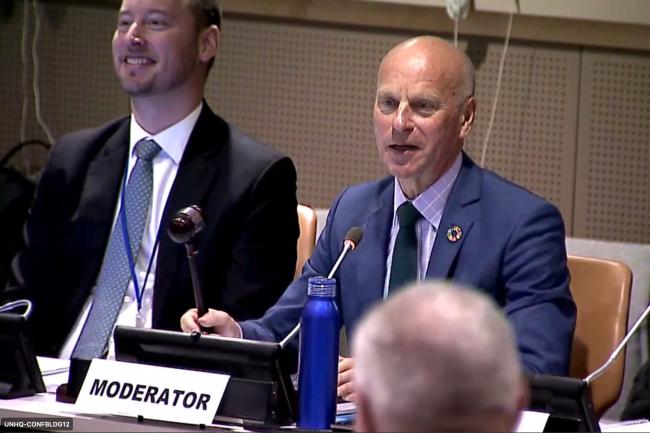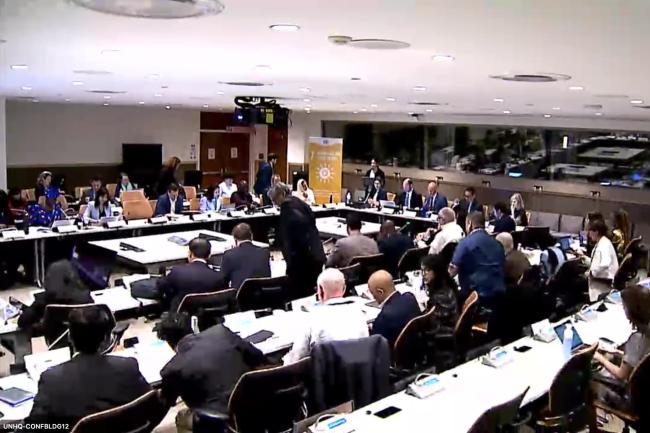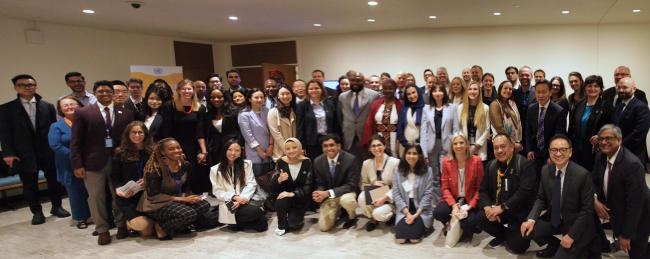On the second and final day of the Global Expert Group Meeting in preparation of the SDG 7 review at the High-level Political Forum (HLPF) 2023, experts focused on strengthening global cooperation on Sustainable Development Goal (SDG) 7 (affordable and clean energy). They suggested ways for improving cooperation such as an inclusive and cross-sectoral stakeholder platform that is both accountable and transparent, to help break down silos.
During the day’s discussions, which were moderated by Hans Olav Ibrekk, Special Envoy for Climate and Security, Ministry of Foreign Affairs, Norway, experts underlined that cooperation is vital for accelerating implementation of SDG 7, and that “delivering action requires solutions without borders.” They also called for focusing cooperation on actual action, not just on intention or ideas.
Experts also discussed energy compacts, highlighting their importance for tracking government commitments on energy and for assessing progress. They compared these compacts to nationally determined contributions (NDCs) under the UN Framework Convention on Climate Change (UNFCCC) and said they can serve to connect SDG 7 and the global roadmap, to a solid action plan on the ground. Further on cooperation, suggestions included creating opportunities for partner organisations working on SDG 7 to collaborate and maximise their synergies.
Experts also discussed possible solutions and ways forward. Several noted that although globally, there is progress on electricity access, Africa is still lagging behind. They called for focusing on Africa and on clean cooking, as the geographical region and target, respectively, most off track. One urged a just and equitable transition of industrial policies in order to create decent and climate-friendly jobs. Other suggestions included active engagement of Indigenous Peoples and youth in the planning, implementation and monitoring of SDG 7 actions.
Lack of sufficient data was highlighted as a challenge, noting that although agencies such as the International Renewable Energy Agency (IRENA) produce a lot of reports, such reports do not cover all countries. Experts pointed out that donors and investors require data to make their investment decisions. They suggested sustained investment in country data systems as a way of addressing this gap.
On finance, one expert called for increased funding directed to the local level, underlining that most funding goes to national governments rather than cities and municipalities, and often the spending decisions are political and do not take local realities into account. They said energy action must be data and fact driven. Another expert proposed that stakeholders should work with financial service providers and governments to support development of appropriate financial services that are suitable to meet both consumptive and productive needs. One expert, noting that many developing countries will not have an optimal credit rating due to the ongoing debt crisis, suggested mobilizing financing for SDG 7 in national budgets and also regional cooperation for financing.
Another solution proffered was focusing on “scale and impact.” Experts lamented a proliferation of small projects and called for selecting those that can be scaled up using scarce public resources. They urged a bottom-up approach, ensuring that priority areas and actions identified by countries themselves receive the greatest attention and financing.
On the way forward, Bahareh Seyedi, Senior Sustainable Development Officer, UN Department of Economic and Social Affairs (UN DESA) and Minoru Takada, Team Leader for Energy and Climate, UN DESA, highlighted upcoming events including the HLPF 2023, SDG Summit, Secretary-General’s Climate Ambition Summit, and the General Assembly’s Summit of the future. They noted the discussions during this meeting aim to contribute to these upcoming meetings.
The meeting was brought to a close at 12:03pm.
To receive free coverage of global environmental events delivered to your inbox, subscribe to the ENB Update newsletter.



















